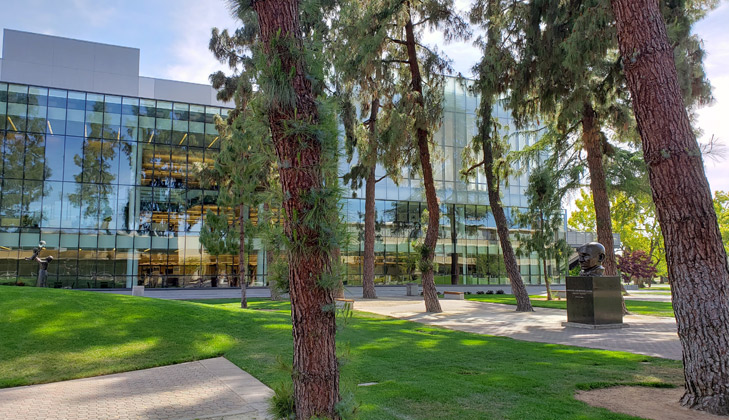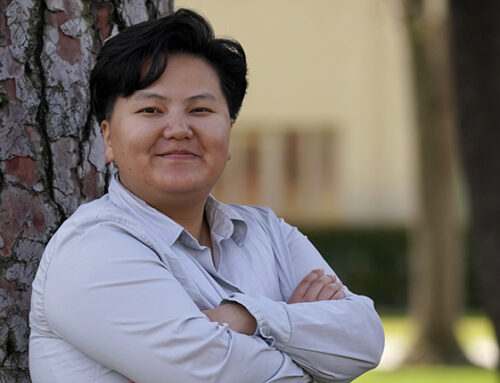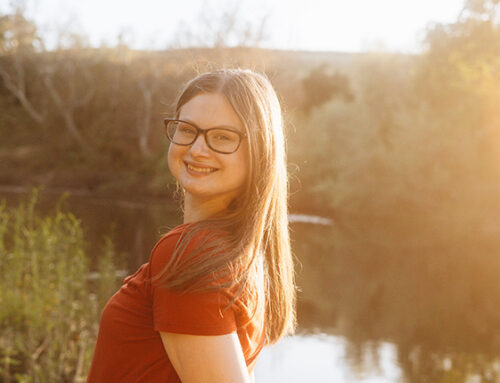Many survivors tell a similar story. As the sun rose over Hiroshima on a clear summer morning on Aug. 6, 1945, air-raid sirens blared, rousing a sleeping city awake. Several minutes later, an all-clear was issued, the sirens stopped, and the estimated 350,000 residents of the city began their daily routines on a hot summer day.
An hour later, 31,000 feet over the city, a B-29 Superfortress silently began a bombing run that would change history. At 8:15 a.m., in a flash of light, about 70,000 people were instantly killed, according to the U.S. Department of Energy. Tens of thousands more would die by the end of the year due to the effects of radioactive fallout. Except for a few buildings, the city was leveled, and the resulting fires completed the devastation.
Less than three-quarters of a mile from ground zero in the shadow of Hiroshima Castle, a camphor tree was damaged and bent by the blast but remained standing. It was one of 170 hibakujumoku, a Japanese term meaning atomic bombed tree, that survived the cataclysm. They would become symbols of peace and hope.
Three seedlings from this tree will be planted at 8 a.m., Thursday, Aug. 6, in the Fresno State Peace Garden to commemorate the 75th anniversary of the atomic bombing of Hiroshima and Nagasaki, remember those who died and to hope that nuclear weapons are never used again. Due to COVID-19 concerns, the public is asked to remain home and experience the ceremony live on Facebook.
“We are honored that our Peace Garden will be home to such special trees — trees whose ancestral memory imparts insight about life, hope and the human power to envision a harmonious future,” said Fresno State Provost Saúl Jiménez-Sandoval.
Rev. Kakei Nakagawa, rinban of the Fresno Buddhist Temple, will give the blessing. Speakers include Rev. Akiko Miyake-Stoner, United Japanese Christian Church; Toru Maeda, Consul General of Japan in San Francisco; and Norman Otani, president of the Hiroshima Chuka Kenjinkai.
The ceremony also marks the beginning of a three-day fast, which will end at 11 a.m. Aug. 9, in recognition of Nagasaki’s atomic bombing. It is up to each participant to define how they will fast during this commemoration.
“We fast to affirm our commitment to nonviolence, peace, justice and to move forward the elimination of nuclear weapons and war as a tool of foreign policy,” said Dr. Sudarshan Kapoor, Fresno State professor emeritus of social work education and peace and conflict studies.
The seeds from the parent tree (No. 17) were collected by the Green Legacy Hiroshima and sent to One Sunny Day Initiatives in Oregon in 2017. They germinated in Southern Oregon University‘s greenhouse, and 35 of the seedlings were sent to the California Health Sciences University for distribution in the Central Valley with the help of the local Japanese-American community.
The commemoration is coordinated with the Japanese American Citizens League; Dale Ikeda, Honorary Consul of Japan in Fresno; and Fresno-Kochi Sister Cities Committee. It is hosted by Fresno State and the Human Rights Coalition of the Central Valley in partnership with the peace and conflict studies program; the Fresno State Ethics Center; Women’s International League for Peace and Freedom; Central Valley Partnership; Central Labor Council, AFL-CIO; Fresno Betsuin Buddhist Temple; Roman Catholic Diocese of Fresno; Unitarian Universalist Church of Fresno; Fresno Center for Nonviolence; Martin Luther King Committee, City of Fresno; Islamic Cultural Center of Fresno and United Japanese Christian Church.




